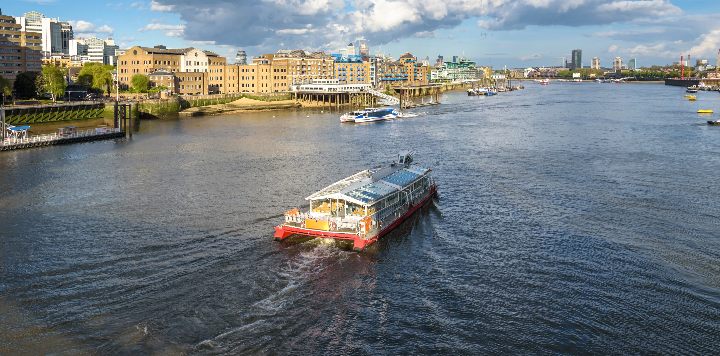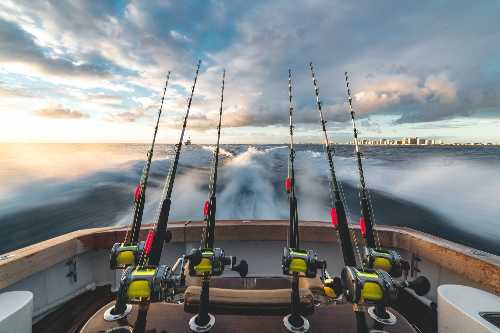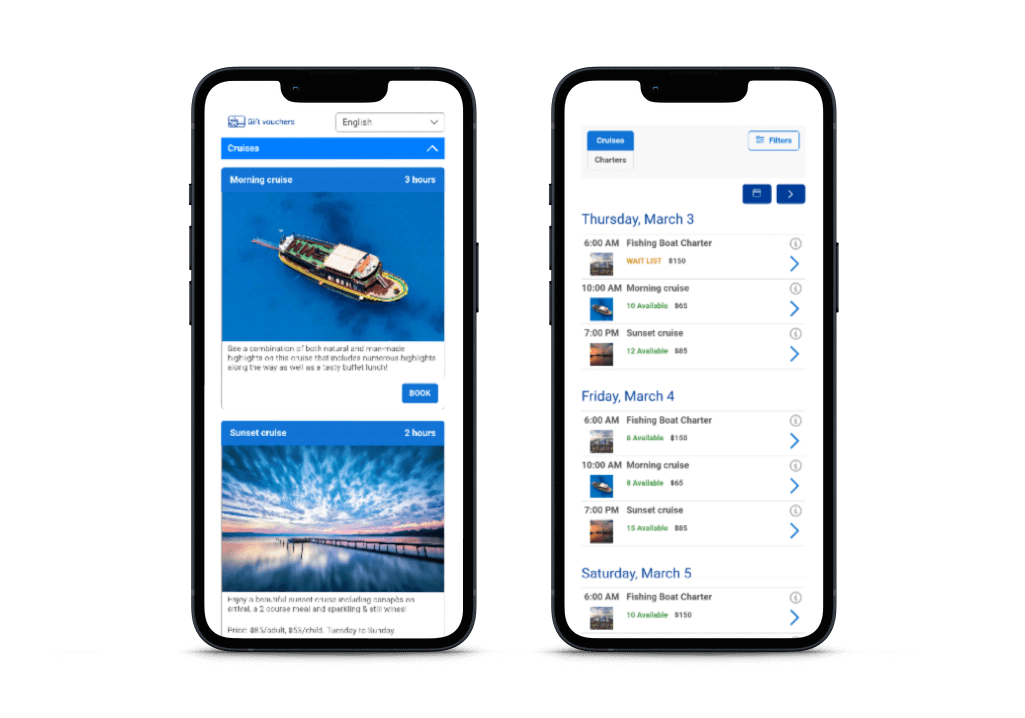
How to Start a Boat Tour Business
The boat charter industry has been quite heavily affected by the global COVID-19 pandemic throughout 2020 and 2021 but has since bounced back stronger than ever.
The industry was valued at $15.205 million in 2018 but is now projected to reach $27 million by 2027, riding the booming post-pandemic growing tourism sector.
With that being said, if you are looking for a business with a healthy earning potential and scalability, starting a boat tour or yacht/boat charter (or yacht charter) business can be just the thing for you.
Yet, just because it’s a lucrative industry doesn’t mean you’ll automatically get billions of Dollars because you’ve started the boat tour business. You’ll still need a proper plan and strategy to achieve success.
In this guide, we will learn how, in an easy-to-understand way.
Without further ado, let us begin right away.
Boat Tour Business: The Concept
A boat tour or boat charter business is essentially about renting your boat for profit.
You, as a boat owner, or a business owning multiple boats, make the boat available for others to book.

Here, we have two variations of the business:
- If you are providing just the boat, and the client is responsible for navigating and provisioning within limits, it is a boat charter service.
- On the other hand, if you offer a customized itinerary and provisioning (as well as a professional guide/caption on board), it is a boat tour business.
As a boat owner, you can develop and offer your own itinerary as you see fit, but there are two popular examples:
1. Fishing tour: or fishing charter, and as the name suggests, is about renting the boat for a few hours with an expert guide to pursue different kinds of fish. In this type of tour, typically, the business owner also rents out fishing gear and safety equipment (which may or may not be included in the initial fee.)

2. Luxury yacht tour: this type of tour can involve a custom itinerary for up to a week in popular tourist locations like the Maldives or the Bahamas. The luxury yacht will be rented together with full professional crews.

You can be creative in designing a business model for your boat tour business but remember that at its core, you can offer at least one of the three things:
- The boat itself: the size and type of the boat may determine how much you can charge in the rental price.
- Destination: if you can offer unique tour destinations nobody else knows about, you can attract more clients.
- Personnel: like an expert tour guide, expert fisherman giving a guided fishing tour, a famous celebrity chef onboard, and so on.
Market Feasibility Study
Before starting your boat tour business, it’s crucial to conduct a thorough market feasibility study (as well as other feasibility studies) to assess whether there’s enough market (and potential revenue) for your business.

The market feasibility study should cover:
- Industry analysis: at least a brief description of the state of the boat tour/boat charger industry.
- Market analysis: the focus here is to find solid evidence that there is a demand (a sizable market) for the boat rental service and other services you are going to offer. You can:
- Send out questionnaires both to the general public and targeted consumer groups.
- Interview and survey existing customers.
- Do a competitive analysis, assessing whether potential competitors in the industry are thriving. A good source of information is to check whether your competitors are showing growth in the number of employees.
- Closely assess competing businesses that are within 15 miles of your planned location, then evaluate other competitors within a 50-mile radius.
- If possible, make a note of any similar businesses in your area that have recently gone out of business, and analyze why they failed. It can tell you what has not worked for other businesses so you can learn from them.
- Future market potential: based on the analysis above, develop a fact-based, logical, and reasonable projection for the boat tour business. While a 100% accurate projection is obviously impossible to make, we can analyze past growth, current markets, and trends to make a calculated prediction.
Target Market
Based on the marketing feasibility study above, by now, you should be able to identify who your ideal target market is.
You can target a wide variety of clientele in a boat charter or boat tour business, including but not limited to:
- Companies (of different sizes and types)
- Individuals looking for fishing recreations
- Families traveling during holidays
- Tourists visiting a new city or country
When determining who your ideal target market is, it’s best to focus on just one, a maximum of two types of clientele to target. Remember that you can’t please everyone, so it’s best to direct your time and resources to the target clientele(s) that are the most ideal for helping your business in achieving initial growth.
Later on, you can expand to target different clientele as your business also grows.
Unique Selling Proposition (USP)
Once you’ve identified your target audience and the type of boat tour/charter business you’d like to run, you’ll need to create at least one Unique Selling Proposition (USP) for your boat tour business.
A USP is, simply put, a unique thing your boat tour business can offer that your competitors can’t.

The USP is essentially why your clients would choose to rent from you and join your trip rather than your competitors. With so many boat charter and tour businesses all around the world, having a strong USP is becoming increasingly important.
For example, having the best of the best yacht in your area is a valid USP (although you’ll lose it once a competitor purchases a better boat than yours). Having an expert tour guide that understands your tour destination inside out is also a huge USP.
How to identify your USP
The secret to identifying a great USP for your business is to figure out your target clientele’s needs and preferences. This way, you can align your offerings with what they actually want rather than pushing your offers to them.
So, creating a USP is about finding out what your clients want from you, and you can do it by:
- Interview existing clients or send out surveys
- Talk to your customer support team and gain insights from them
- Analyze social media interactions
- Analyze data from previous marketing campaigns
And so on.
For example, your customer support team may receive a lot of questions about whether your company offers a guided fishing tour. On the other hand, you’ve discovered that there are few competitors in your area that offer this service.
This means that you can potentially offer a guided fishing tour as your USP (or part of your USP).
Writing a Boat Tour Business Plan
Having a well-written business plan will benefit any business, including your boat tour business.
While a business plan is especially useful when you’d want to secure outside funding (i.e., a bank loan or angel investor’s funding) for starting the boat tour business, it will still be very valuable as your business’s roadmap for success.
There are many methods and structures you can use to write your business plan, but a proper boat tour business plan should include the following elements:
- Your business objectives
- Costs (list of expenses) and financial projections
- Sizes and types of boat you plan on buying (or leasing)
- Services you plan to offer (i.e., fishing boat rental, fishing equipment rental store, professional tour guide service, etc.)
- Price of services
- Target market (clientele)
- Where you’re going to be docking your boat or boats (including if you plan to build a dock)
- Marketing plan (how you plan to promote your business and attract your clientele)

Take the time to write your business plan seriously. As you can see, your business plan will give you a chance to visualize your vision more clearly, so you’ll have a clear roadmap to move in the direction of success.
License and Permits
Do you need a license to sail and rent out a boat or a yacht?
Unfortunately, there is no clear-cut answer for this, and ultimately it will depend on your location, as well as other factors.
Below, we will discuss license requirements in popular locations and how to get your license when required:
- United States
There are several states in the US that do not have any legal requirements before you can rent your boat to others. However, most states in the US mandate a boat safety course at the very least. Check with local authorities about the legal requirements in the respective state.
Merchant Mariner Credential (MMC)
You’ll need to get a Merchant Mariner Credential (MMC) if you are going to make money on a boat as a US-based business, including when starting a boat tour or boat charter business.
There are many different variants of MMCs available, depending on:
- The size of the boat, according to the tonnage determined by the US Coast Guard (USCG,) not necessarily your boat’s actual weight and length.
- The number of passengers you’ll take on the boat. If you only take no more than six, you may only need a more affordable and easier-to-get OUPV (Operator of Uninspected passenger Vessel) MMC rather than requiring a Master’s license.
- USCG offers Inland, Great Lakes, and Near Coastal MMC licenses. If you plan on crossing navigable bays and rivers, you’ll need a Near Coastal license.
You may want to check out the USCG website for MMC here, or you can contact any school licensed by the USGC to get more information.
- Caribbean
No official certifications are required if you (or your client) plan to sail to the Caribbean. However, you should prepare a sailing resume and should be prepared to answer questions related to qualifications like handling tidal ranges and currents. Meaning that unsupervised rental to the Caribbean is most likely not possible.

- UK
No formal licensing or certification is needed if you plan to sail to the UK’s offshore waters. However, if you plan to sail to inland waterway discoveries, you’ll need a Boat Safety Scheme Certificate, and your boat will need to be insured.
- Europe
You’ll need an ICC (International Certificate of Competence) if you’d like to sail the inland waterways of European countries, including around the Mediterranean.
- Australia
Legal requirements in Australia would also vary depending on the state you’re in. In Victoria, for example, you’ll need to possess a marine license, but in Queensland, no certifications and licensing are needed.
Insurance
Some locations will also require you to be legally insured before you can rent out the boat or yacht. However, even if it’s not a legal requirement, remember that your boat is a valuable and expensive asset, and you’d want it to be protected as you rent it out to clients.

Research various coverage types that might be applicable to your business, and you’d want to make sure you’re covered for:
- Damage to your boat during the rental period
- Vandalism
- Accidents
- Injury to employees and clients
- Theft (including if you lose the whole boat)
- Liability coverage
- Worker’s compensation (if you staff other people)
Set up a meeting with insurance brokers in your area to discuss your options. Remember that the most affordable option may not always be your best bet here if it can’t fully protect your boat and your business, causing you to lose more later to pay for damages.
Nevertheless, make sure your business is adequately protected before accepting any client.
Branding Your Business
To successfully attract clients and grow your boat tour business, you’ll need to have a strong, distinctive brand identity in order to get noticed amidst the competition.

Consider the following branding elements:
- Business name: you’d want a name that is easy to remember and pronounce while also representing what your company is about in short but attractive words.
- Logo: your boat tour business’s logo will be one of the most recognizable aspects of your brand, so don’t underestimate its importance.
- Imagery: refers to the style you use to edit images and photos that will appear on your promotional materials and content.
- Tone and voice: how you “talk” to your target audience; vocabulary choices, tone choices (serious/playful.), etc.
- Color scheme: choosing a unique and strong color palette is important since your colors will play an important role in all the other branding elements.
- Typography: the fonts you use in any business-related materials. Having a set font for your business that you’ll consistently use will give you an easier time creating the business’s content with a more cohesive look.
- Catchphrase: Not a must, but if possible, coming up with a catchy catchphrase can be very helpful for your boat tour or boat charter business.
Checking for business name availability.
Before deciding on a business name as a basis for your branding, it’s important to check whether the name is still available.
You can:
- Check on the U.S. Patent and Trademark Office’s federal database or the trademark database in your country whether someone else has registered the name,
- Check the availability of your desired domain name. You can check domain name availability on GoDaddy and Name.com.
Registering Your Boat Tour Business
Once you’ve confirmed the availability of the business name, you should register it with your state as soon as possible.
Before you can register the boat tour business, you’ll need to choose between the available business structures:
- Sole proprietorship
Sole proprietorship means you are registering your boat tour business as the sole owner (i.e., you don’t have any partner or stakeholder,) which also means your business’s liabilities and assets aren’t legally separated from your personal liabilities and assets.
Meaning, that if your boat tour business has a bad debt in the future, you are also personally liable. This is the main downside of the sole proprietorship structure. Other than that, most banks are hesitant to lend to sole proprietorship businesses, so securing funding might be more challenging.
However, a sole proprietorship is very easy to form, and you have 100% control over the boat tour or boat charter business.
- Partnership
Partnership is the simplest type of legal structure if the boat tour business is going to have more than one owner. Thus, this is a good option if you want to test the business idea before forming a more formal structure (i.e., an LLC).
There are two subtypes of this business legal structure:
- Limited partnership: one partner is bestowed with unlimited liability, and other partners have limited liability.
- Limited liability partnership: every owner in this model is given limited liability. The main purpose of this structure is to protect each partner from the partnership itself, so they won’t be held liable for the actions of other partners (i.e., in the event of debts.)
- LLC
LLC stands for Limited Liability Company, and can be considered midway between a partnership and a fully-fledged corporation (more on it later.)
In an LLC, your personal assets and liabilities are separated from the boat tour business’s, so your personal assets won’t be at risk in case the boat tour business faces lawsuits, bad debts, or bankruptcies.
It can be a great choice if you have significant personal assets you’d like to be protected. Another consideration is that in an LLC, profits can get passed through the owner’s personal income without corporate taxes, so owners pay a lower tax rate than they would with a corporate structure.
- Corporation
A corporation fully separates the business as a legal entity from its owners. It offers the strongest protection to its owners from personal liability but is also the most expensive and/or challenging to form than other business structures.
As a corporation, your business will also be legally required for more extensive record keeping and reporting.
Starting your boat tour business as a corporation is a good option if you like to raise more money (i.e., by selling stocks) or if you plan to sell the business or launch an IPO in the future.
Securing Funding
How much would you need to start a boat tour business? While the answer can vary, most likely, the biggest portion of the startup capital will go to purchasing your boat.
There are a wide variety of boats and yachts available on the market with varying price ranges. There are used small yachts (less than 40 feet long) that are under $50,000 in price, but the newest luxury small yachts of the same size can cost more than $1,000,000.

Therefore, finding the right boat according to the type of tours and charters you’d want to run is extremely important.
Besides the starting capital, you’d also want to consider ongoing expenses, such as licenses/certifications, boat repairs, and marketing costs (including building a website and advertising).
Identify how much money you’ll need, and secure your funding.
Marketing Your Boat Tour Business
So, you’ve got everything set up and ready to run the boat tour business?
Remember that the business will only be successful if you can attract enough clients. Don’t underestimate the importance of having a comprehensive marketing plan for your boat tour business, and don’t underestimate the time needed to properly market the business.
In this digital age, having a solid online presence is a crucial foundation of any business’s marketing strategy, and the same thing also applies to a boat tour business.
Focus on having a strong digital presence in these four areas:
- Professional website
With platforms like Wix or even the free WordPress – where you can implement Bookeo’s WordPress booking plugin -, there’s simply no excuse not to have a well-designed and fully-functional website.
Your boat tour business’s website should also have a reliable online booking function.
- Online booking and appointment
Your boat tour and charter clients would simply expect a reliable and easy-to-use 24/7 online booking system for tours.
Consider the fact that many consumers today prefer to book boat tours outside business hours and during their holidays. Integrating 24/7 online booking software to your website, app, and Google Maps listing is crucial if you want to maximize bookings and grow your business.

- Social media
In this social media age, it’s only obvious to promote your boat tour business on social media, and here is what you can do:
- Create and optimize profiles on relevant social media networks
- Run contests and giveaways to build awareness and generate buzz
- Consider investing in relevant paid social media advertising options
- Reach out to relevant influencers (i.e., in the travel niche), so they can help promote your boat tour business.
- Local SEO
Prospective clients will Google “boat charter near me”, “boat tours in (city name)”, or other queries when they are looking to charter a boat or join a tour.
If your business doesn’t appear on the results for these queries, you are simply going to miss out on these potential markets.
You’ll need to optimize your presence on Google Maps, and you can do it by:
- Claiming and verifying your Google My Business listing
- Optimizing your listing, focus on providing complete and accurate information for your prospective clients
- Encourage (positive) reviews from your clients, mainly on Google Maps but also on relevant review sites
- Build local citations by listing your boat tour business on relevant online directories
Conclusion
In this guide above, we’ve shared some of the most effective tips you can use to start and run a successful boat tour business and achieve success.
Of course, you’ll still need to do the hard work, but proper planning and careful execution are important if you really want to continuously attract new customers, retain existing clients, and grow your business.
By following the actionable tips we’ve shared above, you are now ready to start a profitable boat tour business on your own.
* The information contained in this article is being provided solely as general advice, and with the understanding that it is not intended to be interpreted as specific legal, financial or compliance advice.

